
Flat Roof Replacement Options
GET A FREE INSPECTIONFree Roof Inspection
Flat roofs are very common in dry regions like the Southwest U.S., but are found all over the United States, especially in commercial roofing. In this article we’re going to explore flat roof replacement options so you can make an informed decision when it’s time to replace your flat roof.
How to Tell If Your Flat Roof Needs Replacing
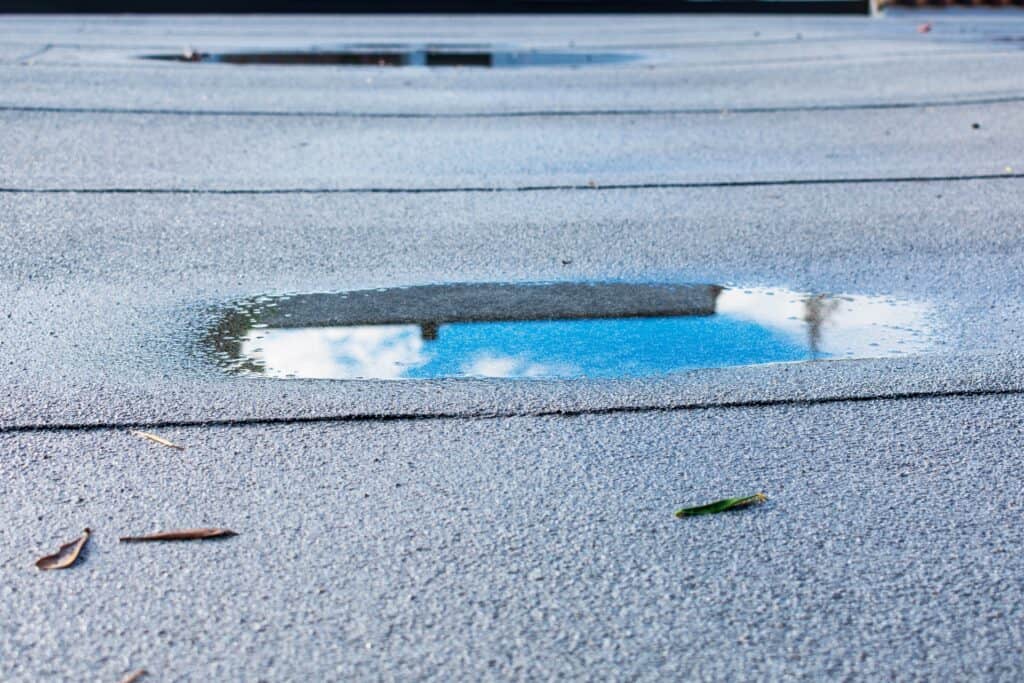
Flat roofs need regular maintenance checks to ensure they have no damages. Otherwise, you'll need to look out for several telling signs that your roof needs replacement. Here are some of them:
- Roof Leaks - The most common and visible damage that you'll notice on flat roofs is roof leaks. Since this roofing material isn't inclined, water tends to stay on the roof surface until it evaporates. Over time, water will start to slip through cracks in your flat roof.
- Water Bubbles and Stain - Watch carefully for water bubbles and stains on your ceilings and walls. These are telltale signs of a roof leak.
- Mold Growth - As with stains, mold growth on your ceilings and walls is also a sign that your roof might be leaking. This is a serious condition that requires an immediate inspection.
Flat Roof Replacement Options
There are many options to choose from when replacing your flat roof. Some of the best options are:
- Metal Roof
- PVC Roof
- TPO Roof
- EPDM Roof
- Built-Up Roof
- Modified Bitumen Roof
Let’s take a look at the pros and cons of each.
Pros and Cons of Metal Roofs
Metal roofs are one of the most durable flat roof replacements, with a life span of about 35 years when properly cared for. Another advantage of installing a flat metal roof is its ability to reflect heat from the sun. This unique feature can help you save energy and reduce your electricity bill.
On the other hand, flat metal roofs also have their downsides. The most major one is that they are prone to rust. This effect may eventually lead to roof damage or replacement earlier than expected.
Pros and Cons of PVC Roof
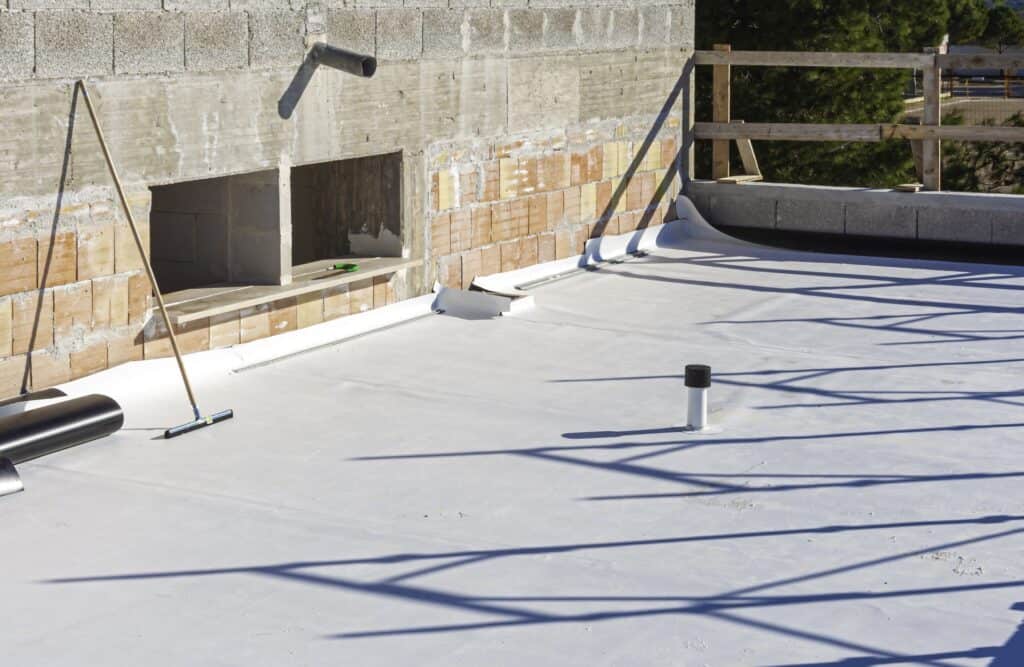
Polyvinyl chloride (PVC) roofs are flexible and also very durable. In ideal conditions, this type of flat roof can last from 20 to 30 years with little maintenance. It's also waterproof, fire-resistant, and can withstand heavy winds and hail. On top of these features, you can find PVC roofs in many colors with varying reflectivity and absorption properties.
One of the disadvantages of using PVC as your flat roof material is its toxicity. It has adverse effects on the environment and humans as well.
Pro Tip: Using a white PVC flat roof can save tons of energy during warmer weather. Meanwhile, using a dark-colored PVC membrane can help you save more during cold seasons.
Pros and Cons of TPO Roof
Thermoplastic polyolefin (TPO) is also a single-ply membrane material with almost the same advantages as PVC. Its most notable feature is its excellent energy-saving properties because of its white color. TPO flat roofs also don't require much maintenance, aren't prone to mold growth, and are very lightweight.
Compared to other roofing materials, TPO is relatively new to the market. It falls more on the expensive side and there can be a pretty wide variance in the quality depending on the brand you choose.
Pros and Cons of EPDM Roof
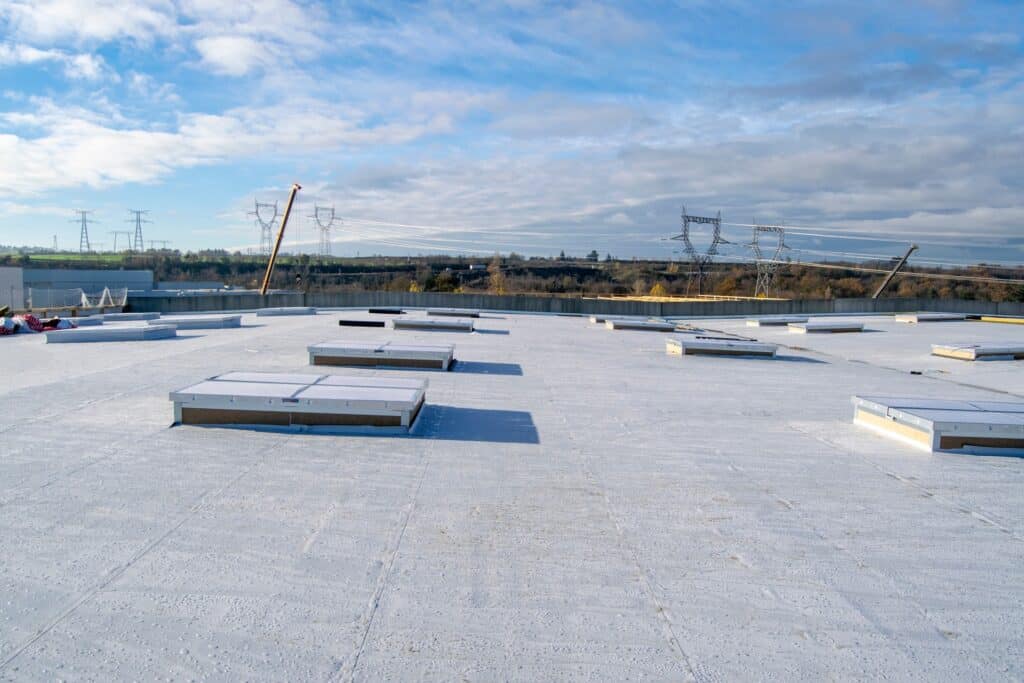
Ethylene propylene diene monomer (EPDM) is a synthetic rubber membrane used for flat roofs. It's very durable and can last for up to 50 years after installation. It's also flexible and easy to install. Because of their elasticity, EPDM roofs naturally expand during hot weather and contract when it's cold.
Installing rubber roofing for your flat roof is also ideal for safety. Rubber is fire resistant and can also withstand heavy impacts. But what stands out with EPDM is its affordability. It's less costly than other roofing materials.
Due to EDPM's elasticity, it's more likely to experience shrinkage, especially when it isn't installed properly. The seams of the roof may break apart and expose the underlayer of your roof. Its black color is also one of its disadvantages since it absorbs extreme amounts of heat. This feature can make your home feel hotter during the summer and can lead to higher energy costs.
Pros and Cons of a Built-up Roof
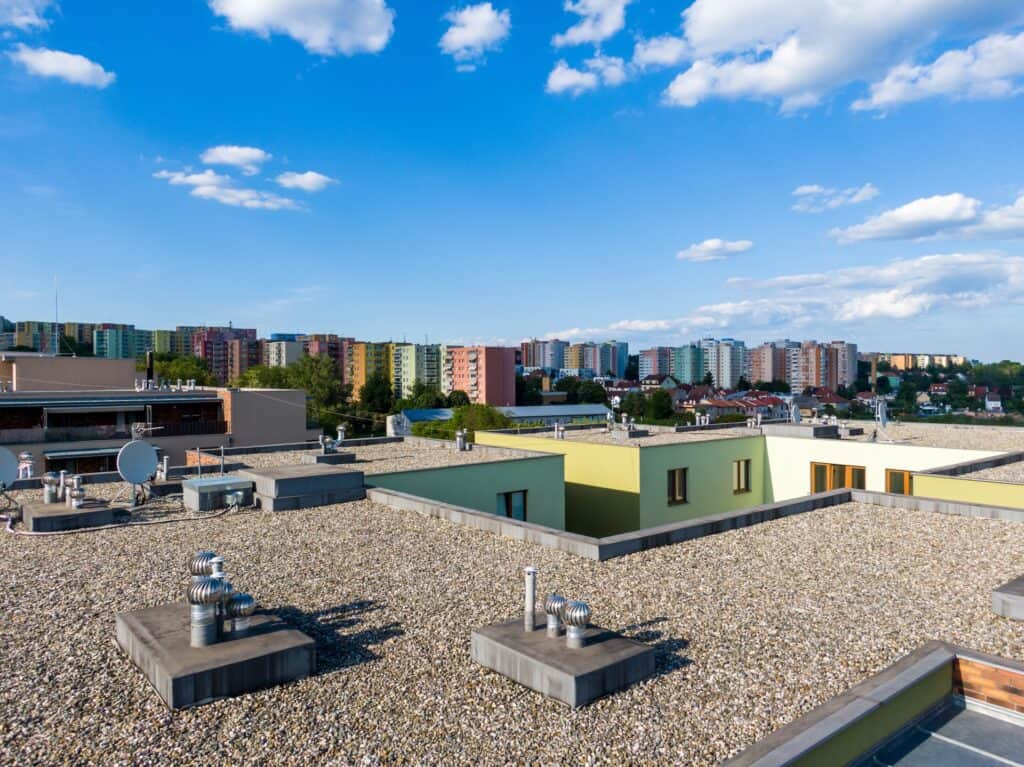
Built-up roofs are one of the most effective roofing systems that are budget-friendly. It has 5 layers of rocks, gravel, hot tar, and asphalt, making it very durable with a service life of up to 25 years. It's also waterproof and has a strong seal given its multiple layers.
Built-up roofs are also ideal for safety. They are fire-resistant since they're composed of rocks. This material is also very stable even when people walk on it. Extreme weather occurrences such as hail will not affect your roof because of its sturdy material.
However, one of its disadvantages is its weight. Built-up roofs are extremely heavy and cannot be installed if your underlayer is lightweight or weak. Its installation may also be costly in terms of labor and may take a while to finish.
Pros and Cons of Modified Bitumen roof
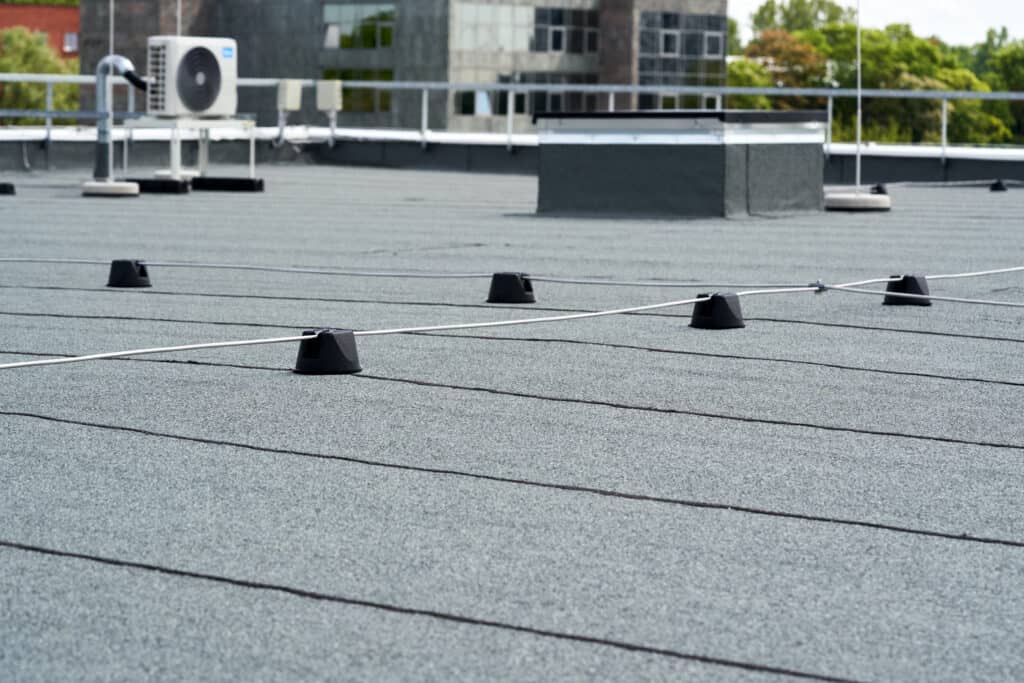
Like PVC, EPDM, and TPO, modified bitumen is a rolled single ply roof material made from asphalt and polymers. This particular composition makes it better than asphalt-only flat roofs. It's also waterproof since you won't have to seal any seams.
When it comes to roof aesthetics, modified bitumen provides many options for color variations. That's a big plus if you plan on matching your roof replacement with the current color scheme of your home. However, this roofing material is prone to damage from falling objects such as tree limbs and branches.
This material is also not as durable as other roofing types since extreme weather and winds can damage it. Instead, modified bitumen is only ideal for 10 to 20 years and roofs with low foot traffic to avoid any cracks or breaks.
Need a Roofer?
When the time comes for a flat roof replacement, RoofClaim has your back. Our roofing experts have installed thousands of roofs and will guide you through the entire process. That includes dealing with your insurance company.

